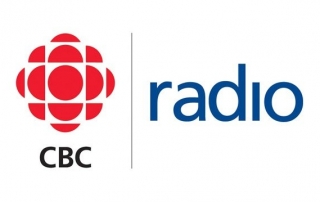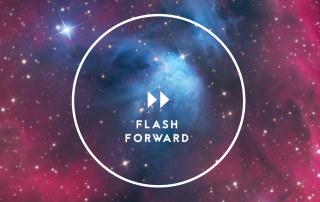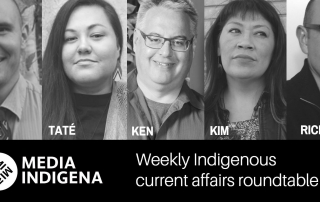CBC Edmonton AM – DNA tests and heritage
Can a DNA test actually tell you anything about your heritage? And why some ancestries -- like Indigenous and Metis -- are especially hard to tease out.
Podcast: WE ARE FAMILY
With the rise in consumer DNA tests and online genealogy, people might soon have a pretty good idea where their families came from for generations. But are we putting too much faith in [...]
Ep. 117: What will Canada buying Trans Mountain mean for Indigenous peoples?
Bitumen Buyer Beware? The Canadian government has just announced it will buy the beleaguered Trans Mountain pipeline project. Will their gamble pay off? And who loses if it doesn’t? * Trump-aganda! When it comes to a recent boast that Americans "tamed a continent," is POTUS 45 honestly all that brutal compared to other presidents—or just the most brutally honest? Two minutes for stereotyping: a non-native booster of the pro hockey team in Winnipeg finds himself on thin ice after referring to the deplorable conditions of some native people as "a terrible stain" on the city. Joining host Rick Harp once again are Candis Callison, associate professor at UBC's Graduate School of Journalism, and Kim TallBear, associate professor of Native Studies at the University of Alberta. // Our theme is 'nesting' by birocratic.
Ep. 115: Why not everyone in Hawai’i is vexed over volcanoes
1. Love for lava: Why some Indigenous people in Hawai’i reject any effort to divert the flow of what others see as the utterly destructive output of the Kilauea volcano. 2. Home away from home: First Nations youth whose only chance for an education is far away in Thunder Bay advocate for a student residence in the city. 3. Living laboratories: a class action lawsuit seeks compensation for decades of medical experiments conducted on Indigenous people without their knowledge. Joining Rick Harp at the roundtable this week are Candis Callison, associate professor at UBC's Graduate School of Journalism, and Kim TallBear, associate professor of Native Studies at the University of Alberta. // Our theme is nesting by birocratic
Ep. 114: The Paranoia and Perils of White Fright
This week // From bad to worse: amid accusations that racism drove an Indigenous dean of law away from Lakehead University, some question why it’s replaced her with a judge who jailed anti-mining Native leaders. Uneducated guess: how a white parent's paranoia almost turned two Native teens' dreams of college into a potential nightmare. Decision day: Quebec’s Superior Court quashes parts of Kahnawake’s controversial membership law. Back at the roundtable with host Rick Harp are Ken Williams, assistant professor with the University of Alberta’s department of drama, and U of A associate professor of Native studies Kim Tallbear. // Our theme is 'nesting' by birocratic.
Ep. 113: A Second Slide into Settler Sexuality
Saddle up for our Settler sexuality sequel! Building on last week’s exploration of how Settler norms impact Indigenous notions of intimacy and interpersonal connections, we more explicitly discuss the erotically infused insights of Mohawk/Tuscarora writer, poet and broadcaster Janet Rogers. Insights she shared with our own Kim TallBear (associate professor of Native Studies at the University of Alberta) at ConvergeCon, the annual conference working to build sex positive communities. Joining host Rick Harp to reflect on Kim and Janet's dialogue is Candis Callison, associate professor at UBC's Graduate School of Journalism. // Our theme is 'nesting' by birocratic.



